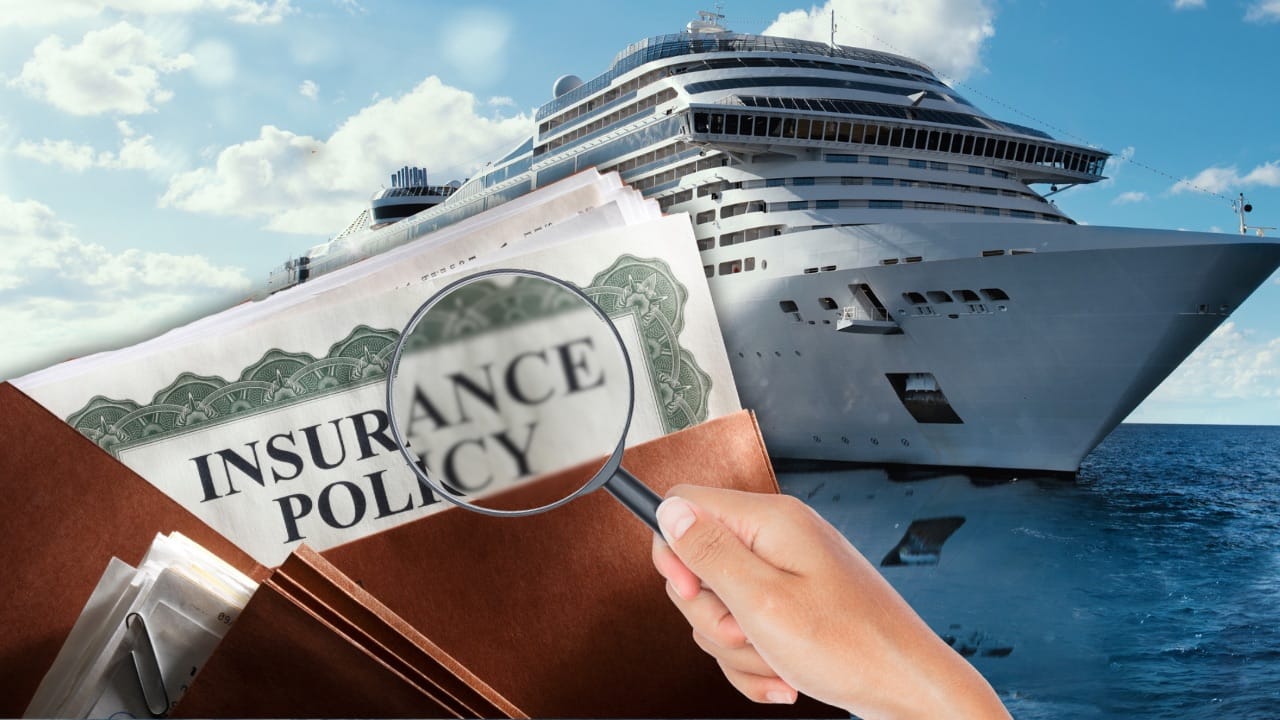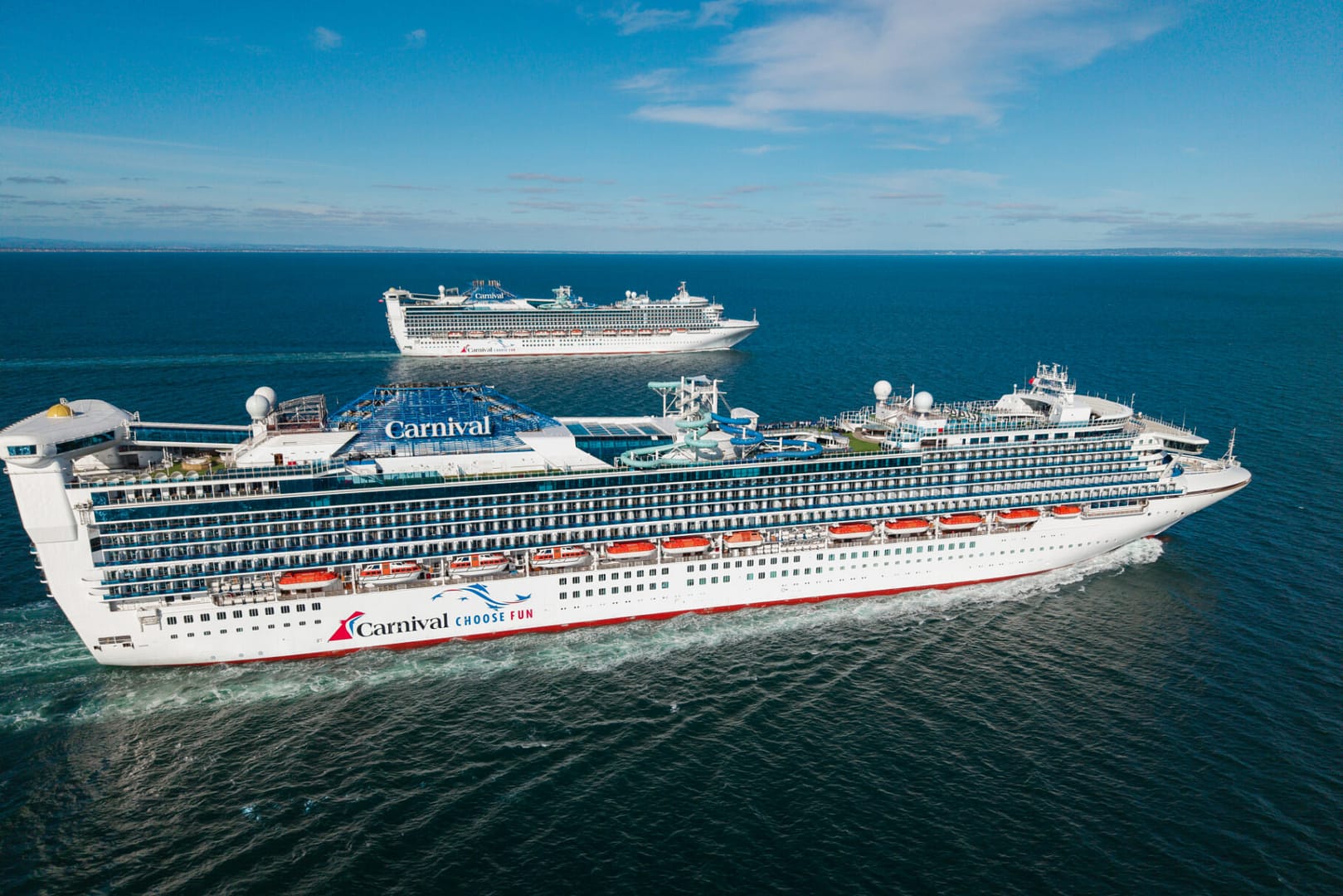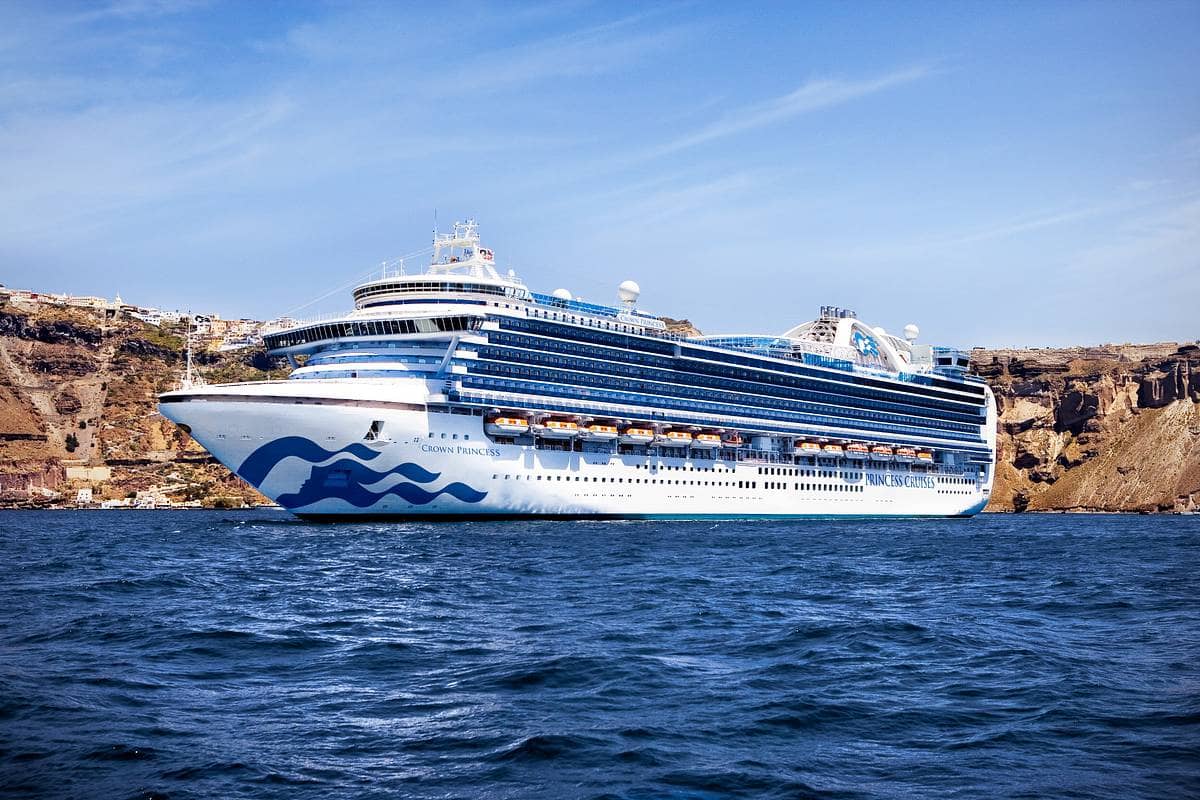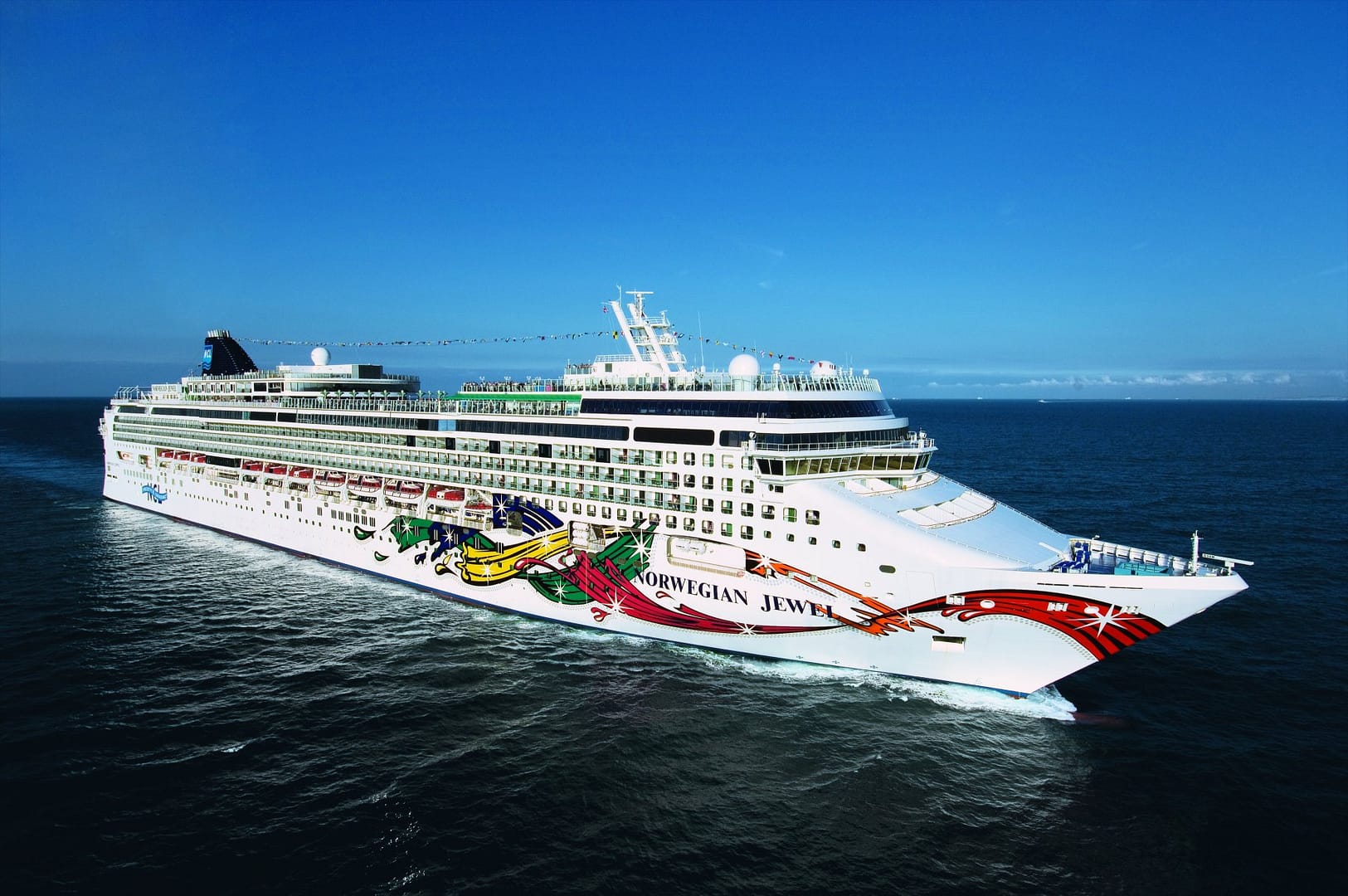Buying Travel Insurance for Your Cruise
Traveling is a thrill, especially when you’re heading out on a cruise. Picture yourself relaxing on the Lido deck, sipping a cocktail, and taking in breathtaking ocean views. But did you know that 40% of travelers face some kind of disruption during their journeys? This statistic alone makes you wonder: should you invest in travel insurance for your cruise? For a fraction of your overall trip cost, cruise travel insurance can protect you from issues like canceled flights, lost luggage, and even medical emergencies.
Yet, many people question whether travel insurance is a necessary expense. In this article, we’ll dive into the details of travel insurance, exploring when you need it and when you don’t. Plus, we’ll uncover some common myths that might be affecting your decision.
We’ve partnered with Visitor’s Coverage! This site lets you easily compare travel insurance from trusted providers. Since insurance is federally regulated, prices are the same no matter where you buy — but you can save by choosing only the coverage you need. That’s why we recommend Visitor’s Coverage: it’s straightforward, no pressure, and lets you find the right policy for you. If you use our link and make a purchase, we may earn a small commission.
What Is Travel Insurance?
Travel insurance is essentially a safety net. It provides financial protection against unexpected events while you’re away from home. Most policies cover medical expenses, trip cancellations, and loss of personal belongings—all bundled together for your convenience.

Understanding Coverage Types
Let’s break it down a bit. Travel insurance typically includes several different types of coverages bundled into one policy.
- Emergency Medical and Dental Coverage – includes doctor’s visits, dental work, medications, surgery, and hospital stays. Any procedures must be medically necessary – routine exams and elective surgeries are not covered.
- Medical Transportation Coverage – includes the evacuation costs of getting to the nearest hospital that is able to treat you effectively. This coverage will also pay to bring a loved one to your hospital bedside, send minor children of a sick or injured parent home safely, and make any extra medical arrangements needed to get you home once you are recovered enough to travel.
- Trip Cancellation Coverage – reimbursement for any non-refundable trip expenses if you are unable to go on your vacation.
- Trip Interruption Coverage – reimbursement for any non-refundable trip expenses or for extra costs if a problem occurs during your vacation.
- Travel Delay Coverage – reimbursement for transportation, accomodations, and food when you are unable to reach your destination on time.
- Baggage Delay Coverage – allows you to purchase essential items when you are separated from your belongings.
- Baggage Loss Coverage – reimbursement for your personal belongings if they are permanently lost or damage.
Key Benefits of Travel Insurance for Cruisers
Medical Emergencies
A standard U.S. health insurance usually does not cover you overseas or even on the ship itself. If you find yourself needing medical help, you will likely be paying out of pocket.
A cruise ship’s medical facilities are well equipped to deal with most emergencies at sea. They can treat gastrointestinal illnesses, care for wounds, and stabilize a heart attack victim. Most often in an emergency, the ship’s doctor will treat a patient while the ship makes its way to the nearest port with a hospital. This may force the captain to change the planned itinerary for the cruise.

One thing that the ship’s hospital is not equipped to provide are emergency surgeries such as an appendectomy. In this situation (and others), a helicopter medivac may be required. Many people don’t realize the dramatic rescues performed by the US Coast Guard are actually covered by the government. While the operation cost tens of thousands of dollars, the sick or injured person is not billed for this. However, each country operates under their own laws, and if you require a medivac in foreign waters you may be required to pay.
Fortunately, travel insurance can reimburse you for all these expenses, up to the policies limits.
Trip Cancellations and Interruptions
Many people book cruises months or even years in advance. To reserve a cabin, you must place an initial, often non-refundable, deposit on the room. Full payment is due 60 to 90 days before your departure date. After that date, you may still cancel your cruise but will receive only a percentage of your cruise fare back. Note that this applies specifically to the cruise fare. By law, if you miss your cruise, you will receive a refund for all taxes and fees no matter when you cancel.
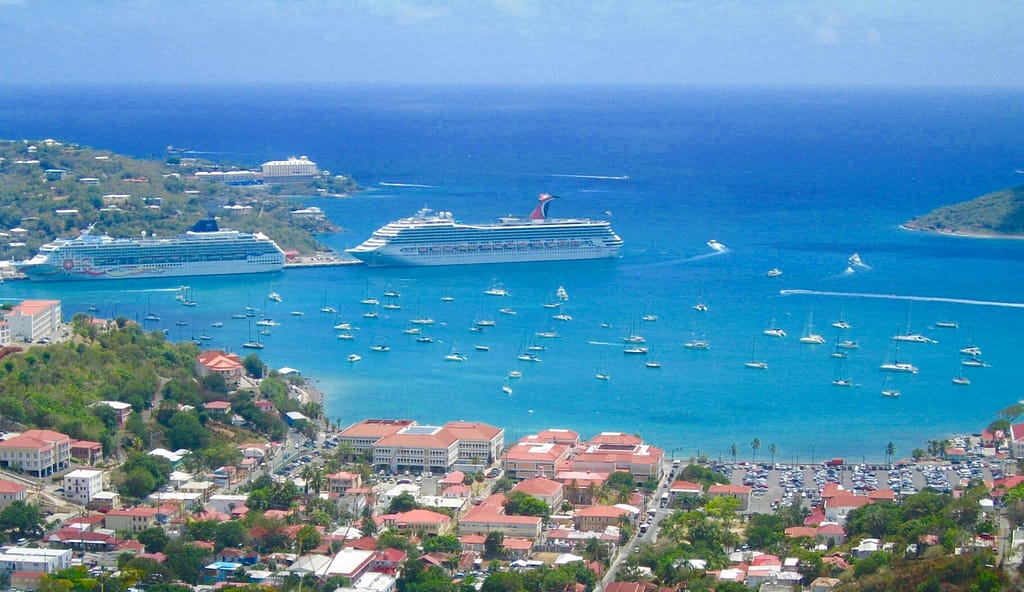
Shore excursions are an anticipated aspect of cruising, but they can also be fraught with worry. The cruise ship has a scheduled departure time, and it will leave without you. You will then be responsible for finding your own transportation to the next port so that you can rejoin the ship.
Travel insurance will cover the cost of unforeseen cancellations and interruptions if they are a covered event. Read your policy’s fine print to understand what might be covered, and be prepared to submit receipts and other documentation to support any claim.
Personal Belongings
If your bags don’t make it onto the cruise ship with you, you could find yourself in a challenging situation. You’ll need to buy essential items from the ship’s general store, which is often stocked with a limited selection of clothing, toiletries, and other necessities. In addition, prices in these onboard shops tend to be significantly higher than what you’d find at regular retail stores.
Travel insurance can’t magically make your luggage appear, but it can cover the extra expense of replacing missing items. Many companies also have a dedicated help line with a concierge that can work to locate your missing suitcase on your behalf.
Common Myths About Cruise Travel Insurance
Myth #1: You Must Buy Travel Insurance Through the Cruise Line
FALSE: Insurance sold by cruise lines is often overpriced and limited in scope. The policy may only cover the cruise portion of your trip, not airfare or hotel stays. Reimbursement for a claim may be in the form of future cruise credit rather than cash. Instead, consider options from your travel agent or purchase directly from reputable travel insurance websites.
Myth #2: You Must Buy Insurance When You Book Your Cruise
FALSE: Many policies allow you to buy coverage anytime before your trip, although waiting too long can mean missing out on certain coverages. A general guideline in insurance is that you cannot insure against something you already know will occur. This means that if you buy travel insurance after you’ve been diagnosed with a medical condition or after a tropical storm has been announced, those issues won’t be covered.
Myth #3: You Must Purchase a Separate Policy for Each Cruise
FALSE: Annual travel plans are available for one yearly premium. If you go on three or more trips per year, this is absolutely worth considering. And you can rest easy knowing that you’re covered for any personal trip – not just a cruise – as long as you’re traveling at least 100 miles away from home.
Insurance Fine Print to Watch Out For

Understanding the fine print is crucial. Travel insurance companies will only pay out for a “covered event”. These events are listed in your policy but can include the following situations:
- If you or your traveling companion become sick or injured before or during your trip, and can’t travel.
- If you are ordered to appear in court – including for jury duty.
- If your home is hit by a tornado, either just before or during your cruise, and becomes uninhabitable.
- If you are in a traffic accident on your way to the airport, and your car or you need significant repair.
- If you need to attend the birth of a new family member, like a grandchild.
- If you are permanently laid off from your long-term job, through no fault of your own.
- If your employer requires you to relocate at least 200 miles away from your current home.
- If a family member back home develops a life-threatening condition and you need to return to be with them.
Common Exclusions
Many policies exclude injuries from hazardous activities, including certain shore excursions like parasailing or zip-lining. Additionally, most don’t cover losses from illegal acts, so stay on the right side of the law during your trip!
Coverage Limitations
Another area to scrutinize is baggage loss coverage. Not all personal items are fully insured, and high-value items like electronics might not be covered adequately. If you have expensive belongings, consider adding them to your homeowner’s or renter’s insurance policy for extra protection.
The Importance of Shopping Around
When it comes to travel insurance, one size definitely does not fit all. Different insurers offer varying levels of coverage and costs. Comparing policies can help you find one that fits your needs and budget.
The travel insurance landscape may seem overwhelming, but it’s worth taking the time to understand your options. Remember, always do your research before making a decision. Look beyond the advertisements and find what truly fits your travel needs.
In the end, travel insurance is more than just an added expense; it can serve as a safety net for anything that goes wrong in your travels. Enjoy your cruise with peace of mind, knowing that you have a backup plan in place!

